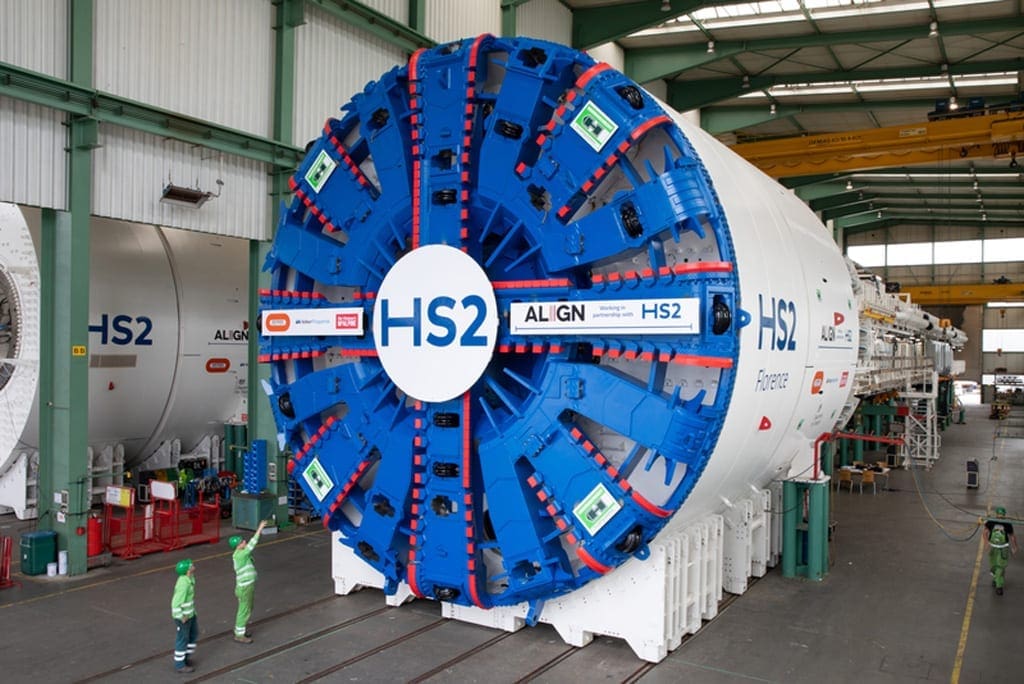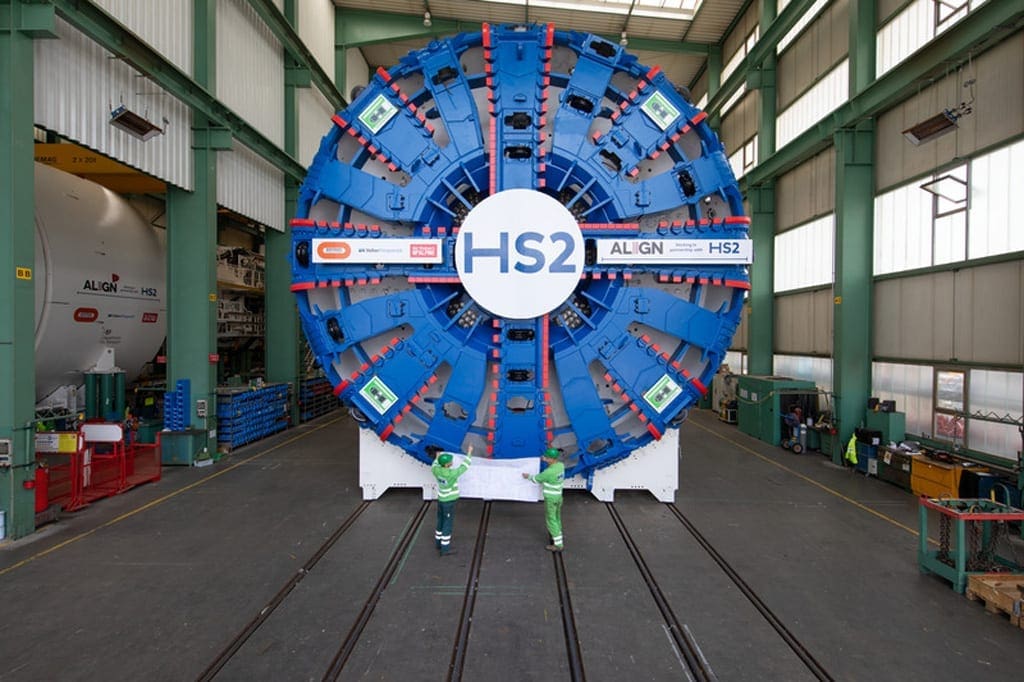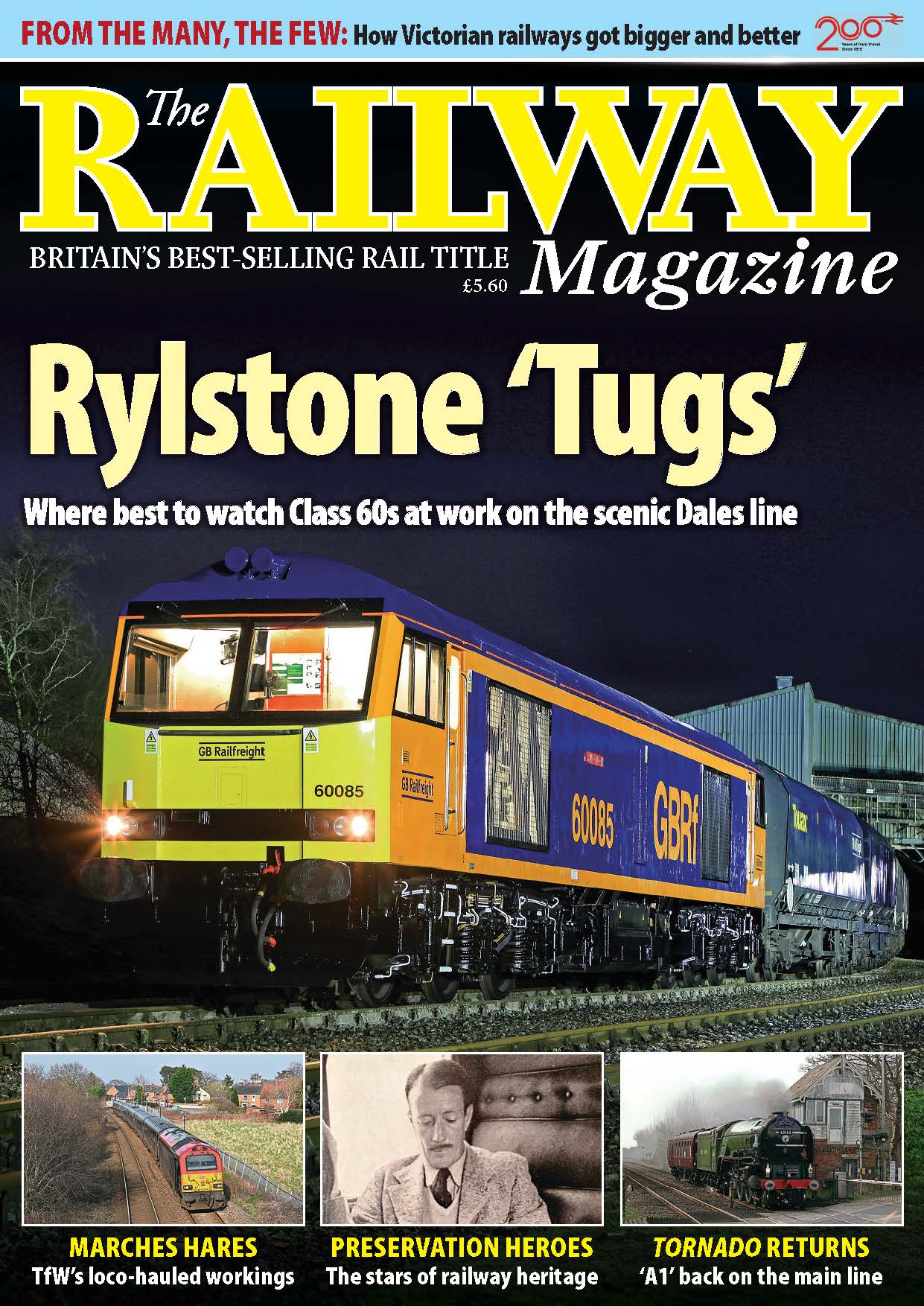
HS2 will launch its first giant tunnelling machine today (May 13).
The 558ft long contraption will dig a 10-mile tunnel under the Chiltern Hills, starting from a site in Buckinghamshire near the M25 motorway.
Related articles
- Delayed White Paper review into Britain’s railways to be published
- Train firm slammed for ‘cynical’ fake bonus email in cybersecurity exercise
- Rail disruption due to train cracks to last ‘for a number of weeks’
It will work non-stop for three years and is one of 10 tunnel boring machines (TBMs) being deployed between London and the West Midlands for Phase 1 of the high-speed railway.
Transport Secretary Grant Shapps said the launch of the first TBM is “a landmark moment for the project”.

He went on: “The work has truly begun on taking HS2 northwards.
“The tunnels these machines dig will ensure the benefits of our new high-capacity, high-speed railway run to the great cities of the North and Midlands, forging stronger connections in our country, boosting connectivity and skills opportunities, and transforming our transport links.”
Mark Thurston, chief executive of HS2 Ltd, the Government-owned company responsible for building the high-speed railway, said the project is “providing a major boost to the economy in these difficult times”.
He said more than 16,000 jobs and 500 apprenticeships are already being supported by the work.
“I hope the entire country will get behind this truly transformative project,” he added.
The TBM launching has been named Florence after Florence Nightingale, the founder of modern nursing who spent many years in Buckinghamshire.
It will be joined by a second, identical machine, enabling separate tunnels for north and southbound trains to be dug.
The tunnels will reach depths of up to 262ft (80m) below ground to reduce the impact of high-speed trains on communities and countryside.
The 2,000-tonne machines will operate as self-contained factories with a crew of 17 people working 12-hour shifts to keep them running continuously.
In addition to digging, the TBMs will line the tunnel walls with concrete segments as they move forward at a speed of 49 feet (15m) per day.
They will also convert the material they dig out into slurry, which will be pumped out the tunnels and used for landscaping.
Specialist firm Herrenknecht built the machines at its factory in south-west Germany at a cost of tens of millions of pounds each.
The TBMs were transported to the UK in more than 300 separate shipments last year before being reassembled.
They are designed specifically for the mixture of chalk and flints under the Chilterns.
Digging the tunnels is part of a £1.6 billion contract awarded to Align, a joint venture formed of infrastructure companies Bouygues Travaux Publics, Sir Robert McAlpine and VolkerFitzpatrick.
HS2 will be extended from Birmingham to Crewe in Phase 2a, with Phase 2b planned to run from Crewe to Manchester, and from Birmingham to Leeds.
But Tuesday’s Queen’s Speech raised fears that the eastern leg could be scrapped due to the cost of the project.
A Bill providing the powers to extend the line to Manchester was announced alongside the speech which set out the Government’s agenda, but no mention was made of the stretch to Leeds.
Tim Wood, acting chief executive at Transport for the North, which advises the Government on the region’s transport needs, said “backing the full HS2” is vital to “transform connectivity”.


